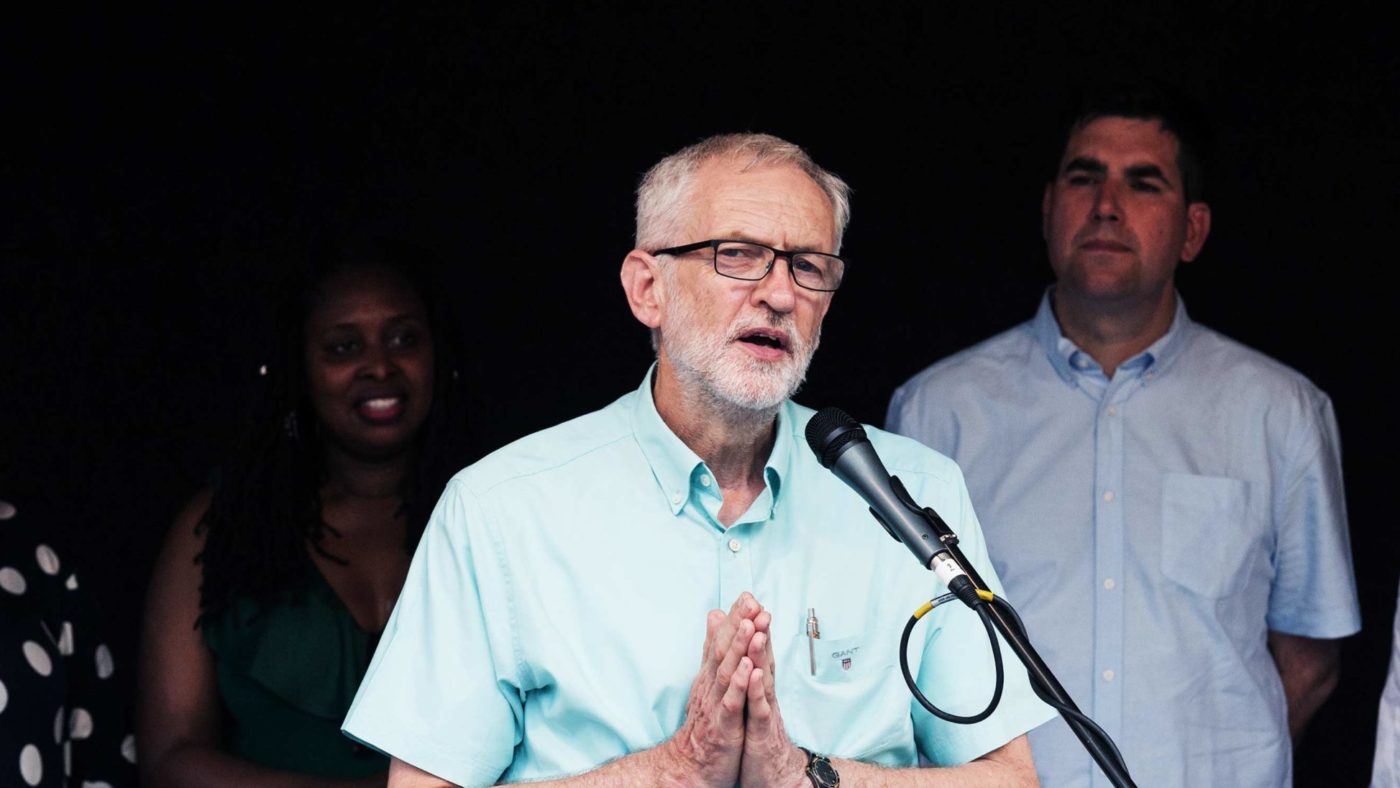Jeremy Corbyn is often referred to as a man of peace by his supporters. Based largely on his opposition to the 2003 invasion of Iraq, which is something of a litmus test in this regard, he is said to have consistently been on the “right side of history”.
In 2017, Labour’s shadow foreign secretary Emily Thornberry talked of a return to Robin Cook’s “ethical foreign policy” if Labour were returned to office. “We will not just return to the Cook Doctrine, but take immediate steps in government to enact it,” she wrote in an op-ed for the Guardian.
A Labour government would, Thornberry said, “stand up to his [Donald Trump’s] administration”. A Labour government would also review arms sales to Saudi Arabia after alleged war crimes in Yemen.
Granted, Britain isn’t the global power that it once was, but a Labour government would likely hasten Britain’s retreat to a bit-part player in the Western alliance. Thornberry may have pledged, as the Guardian put it, to “stand up to countries including China, Turkey and Egypt on human rights”, and with good reason; but what does that entail in practice? Beyond the halting of arms sales to Saudi Arabia – a decent enough cause – probably not very much.
It is certainly doubtful whether foreign policy under a Corbyn government would resemble that ‘ethical foreign policy’ espoused by Cook. Thornberry’s veneration of Cook seems to refer more than anything else to his eloquent opposition to the war in Iraq, the prism through which the left views almost every contemporary foreign policy question.
Elsewhere, Corbynism and the Cook doctrine diverge sharply, particularly when it comes to the 1999 war in Kosovo. As a backbencher Corbyn opposed intervention, sponsoring an Early Day Motion in 2004 in support of an article which appeared in the New Statesman by crank ‘journalist’ John Pilger, “reminding readers of the devastating human cost of the so-termed ‘humanitarian’ invasion of Kosovo”. The motion also referred to what it called “the fraudulent justifications for intervening in a ‘genocide’ that never really existed in Kosovo”.
As anyone familiar with the conflict will tell you, one of the reasons there wasn’t a full-blown genocide was arguably because the NATO intervention removed Yugoslav military forces from Kosovo, though not before many thousands of Kosovar Albanians has been expelled from their homeland.
The International development secretary at the time, Clare Short, herself an erstwhile opponent of the Iraq War, branded Corbyn and his sidekick John McDonnell a “disgrace to the Labour party” for their trenchant opposition to the NATO-led intervention, and compared them to those who “appeased Hitler”. The Morning Star, Corbyn’s favourite newspaper, ran a solidly pro-Milosevic editorial line throughout the conflict.
In comments that slipped under the radar of much of the media, largely because few in Britain care about human rights in Cuba, McDonnell recently said that in government Labour would be a “staunch ally” of the dictatorship in that county. Again, so much for an ethical foreign policy. The Cuban government is responsible for a host of human rights abuses, including politically-motivated arrests, torture, censorship and the prohibition of independent bargaining.
Similar support would presumably be forthcoming for the dictatorship in Venezuela, a country whose repressive government Corbyn has heaped praise on in the past. Since Nicolas Maduro began cementing his power in 2014, Corbyn has refused to condemn him, instead hiding behind obfuscation and referring to the “violence of both sides”.
It might of course be argued that none of this really matters – the British government has little influence on events in Latin America. Yet it is hardly the hallmark of an ethical foreign policy. One certainly cannot imagine the late Robin Cook being so keen to get into bed with these sorts of autocratic regimes.
But then, the jettisoning of human rights concerns when it comes to favoured causes is of a piece with the views of Corbyn’s closest confidants, Seumas Milne and Andrew Murray. In a 2009 interview with his friend George Galloway for TalkSport Radio, Milne described the fall of the German Democratic Republic as an “important loss for many millions of people”. Murray has similarly helped to sow confusion over Russia’s 2014 annexation of Crimea, relentlessly pushing the Kremlin line that Crimea was overrun with Ukrainian fascists. Murray was subsequently banned from Ukraine by the democratic government of that country as it views him as part of the Kremlin’s propaganda network.
Global alliances would certainly change under a Labour government, but not one suspects in a manner that anyone hoping for a genuinely ethical foreign policy would wish for. Saudi Arabia, Egypt and Turkey would fall out of favour while countries such as Cuba, Venezuela – and perhaps even Russia – would receive a boost.
“The Labour government will put human rights at the heart of our foreign policy,” Robin Cook informed the press gallery on becoming Foreign Secretary in 1997. Unfortunately, based on the alliances and utterances of Corbyn’s team, anyone who believes that a Labour government would renew Cook’s admirable legacy is probably deluding themselves.
Click here to subscribe to our daily briefing – the best pieces from CapX and across the web.
CapX depends on the generosity of its readers. If you value what we do, please consider making a donation.


